Presenting: 2023 Incubated Charities (Round 2) - Charity Entrepreneurship
After launching our first batch of 2023 charities in April, we are now thrilled to announce the launch of four new nonprofit organizations through our July/August 2023 Incubation Program.
The 2023 Round 2 incubated charities are:
Clear Solutions—Providing treatment for young children to prevent deaths from diarrhoeal diseases.
Lafiya Nigeria—Reducing maternal mortality by providing safe family planning options in rural northern Nigeria.
Alliance for Reducing Microbial Resistance—Supporting sustainable access to and the development of antimicrobials to combat antimicrobial resistance.
Concentric Policies—Preventing and controlling noncommunicable diseases through data-driven policymaking.
Detailed introductions to the new projects will follow below.
Context: The Charity Entrepreneurship Incubation Program July-August 2023
The July-August 2023 program focused on global health, including health security and policy-focused interventions. Our generous donors from the CE Seed Network have provided the new initiatives with $583,000 seed funding to kickstart their interventions.
In addition to the seed grants, as usual, we will provide our founders with continuous mentorship, operational assistance, free co-working spaces at our London office, and access to an ever-growing network of founders, donors, and highly specialized mentors.
Feel free to learn more about the program here. The next application phase will start in February 2024, when you will be able to apply for the August-September 2024 and February-March 2025 Incubation Programs.
During the August-September 2024 program, you will be able to launch nonprofits focused on the most cost-effective Sustainable Development Goals, as well as organophosphate pesticides and other neurotoxicants. To receive notifications when we start accepting applications, sign up to our newsletter here.
Our new charities introduce themselves:
CLEAR SOLUTIONS
Co-founders: Charlie Jeong, Martyn James
Website: www.clearsolutions.global
Email address: info@clearsolutions.global
CE Incubation Grant: $150,000
Description of the intervention Clear Solutions focuses on increasing the usage of oral rehydration solution (ORS) and zinc. These are cheap and highly effective treatments for one of the leading causes of death globally in young children: diarrhea. We are building partnerships with community health worker (CHW) networks to provide free, pre-emptive home delivery to households with young children. We will help CHWs provide ORS and zinc, guide caregivers, and conduct monitoring to ensure effective rollout.
Background of the intervention ORS and zinc are not new, but usage remains tragically low in some populations, meaning a missed opportunity to address nearly 500,000 deaths of children under five years old each year. Improvements in delivery and health education strategies are needed to drive up stagnating usage rates. We decided on the model of provision of free pre-emptive delivery by CHWs based on high-quality evidence, including a randomized controlled trial (RCT) in Uganda (Wagner et al., 2019), in which free and convenient (home-delivered) ORS and zinc provision increased usage by more than 30% when compared to the standard access.
Near-term plans We are planning visits to the two or three countries we prioritized based on disease burden, ORS and zinc usage rates, and tractability factors: Nigeria, Ethiopia, and Madagascar. During these, we seek to deepen our familiarity with the context of caregivers and CHWs and establish partnerships with governmental and local non-profit organizations. We are still growing our networks in these countries, so if readers would like to help and are involved with non-profits or healthcare in Nigeria, Ethiopia, or Madagascar, please email us.
LAFIYA NIGERIA
Co-founders: Klau Chmielowska, Céline Kamsteeg
Website: www.lafiyanigeria.org
Email address: info@lafiyanigeria.org
CE Incubation Grant: $185,000
Description of the intervention
Lafiya Nigeria enables access to safe family planning in Nigeria through a direct distribution model. We procure an innovative, cost-effective, and self-injectable contraceptive called ‘Sayana Press’ (or DMPA-SC), which provides contraceptive cover for three months from a single injection. We upskill Lafiya Sisters, locally employed nurses and midwives, with additional family planning training. Lafiya Sisters provide family planning counseling and distribute the Sayana Press free of charge to women with an unmet need for family planning.
Background of the intervention
In many low and middle-income countries, giving birth is one of the most dangerous actions a woman can take. In Nigeria, over 45% of women who want contraception do not have access to a method – this lack of response to the unmet need results in over three million unintended pregnancies annually. Due to high fertility rates, low contraceptive uptake, and poor healthcare services, over 40,000 women in Nigeria die each year from preventable pregnancy-related issues. We believe this number should be zero.
Near-term plans
With the CE incubation grant, our near-term aims are across three areas: 1) Scale our existing operations: within six months, we will commence operations in a third Nigerian state, as well as broaden our existing reach in Kebbi and Jigawa states; 2) Conduct external impact evaluation: based on promising pilot results from the past two years, we aim to robustly evaluate our impact, eventually leading to an RCT within two years; 3) Increasing partnerships: we aim to increase our visibility with state and federal governments. This is already bearing fruit, as the Federal Ministry of Health recently invited us to its quarterly Family Planning Technical Working Group, where we were able to contribute to national strategy around family planning.
ALLIANCE FOR REDUCING MICROBIAL RESISTANCE
Co-founders: Aanika Dalal, David McKinney, and Sofya Lebedeva
Website: https://www.armoramr.org
Email address: hello@armoramr.org
CE Incubation Grant: $155,000
Description of the intervention
ARMoR is an evidence-led non-profit organization combating the growing threat of Antimicrobial Resistance (AMR). We perform research and advocacy supporting innovative policy initiatives, with a primary focus on market shaping “pull incentives,” aiming to foster the development of new, high-value antimicrobials and ensure fair access for those with the greatest need.
Background of the intervention
Antimicrobials are medicines that kill or prevent the spread of microorganisms such as bacteria, viruses, fungi, and parasites. Because of antimicrobials, many of us are no longer at risk from dangerous infectious diseases such as tuberculosis, sepsis, and meningitis. Over time, as we use these drugs to combat infections, the microorganisms we target evolve and develop resistance to our treatments, rendering them ineffective, a phenomenon known as AMR.
At least 1.27 million deaths and 47 million DALYs are directly attributed to bacterial AMR each year, surpassing the toll of malaria and HIV. This number is rising at an alarming rate, and some studies have estimated that, without serious intervention, antimicrobial resistance could overtake cancer as a cause of death by 2050, with 10+ million fatalities each year.
Near-term plans
Our initial advocacy efforts will be focused on the Netherlands and Germany (though this is still tentative as we conduct a more in-depth analysis). In the upcoming quarter, we plan to:
Conduct an in-depth stakeholder analysis of our target countries to identify the most promising opportunities for advocacy.
Research and write up an initial policy brief.
Build up a network in target countries and the AMR space.
Conduct and publish a survey of major pharmaceutical companies.
CONCENTRIC POLICIES
Co-founders: Sam Emerman, J.T. Stanley
Website: https://www.concentricpolicies.org/
Email address: info@concentricpolicies.org
CE Incubation Grant: $93,000
Description of the intervention
Concentric Policies focus on preventing and controlling noncommunicable diseases (NCDs). We conduct research and advocacy to expand the adoption of evidence-based health policies across low- and middle-income countries. Through collaboration with governments, civil societies, and citizens, we aim to reduce the unhealthy consumption of tobacco, sugar, sodium, and alcohol.
Background of the intervention
NCDs cause 74% of all deaths globally, 17 million prematurely. The WHO has produced comprehensive action plans to reduce the health burden from four key disease areas: cardiovascular disease, diabetes, cancer, and chronic respiratory disease. Although there are several solutions with robust bodies of evidence, most countries do not fully meet WHO guidelines. Some of the highest-impact policy recommendations for NCDs include higher taxation on tobacco, alcohol, and sugar-sweetened beverages and reformulating food products to contain less salt.
Near-term plans
Concentric Policies will initially focus on tobacco control. Our plan for the remainder of 2023 centers around country selection, building technical capacity, and establishing partnerships with NGOs and civil society. We will continue to combine desk research with expert opinions to narrow down our shortlist of potential pilot countries. We aim to conduct one or two country scoping visits by the end of the quarter.
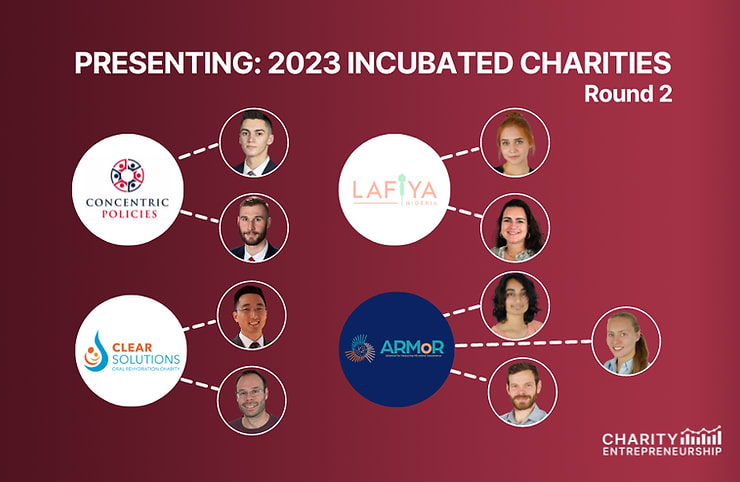
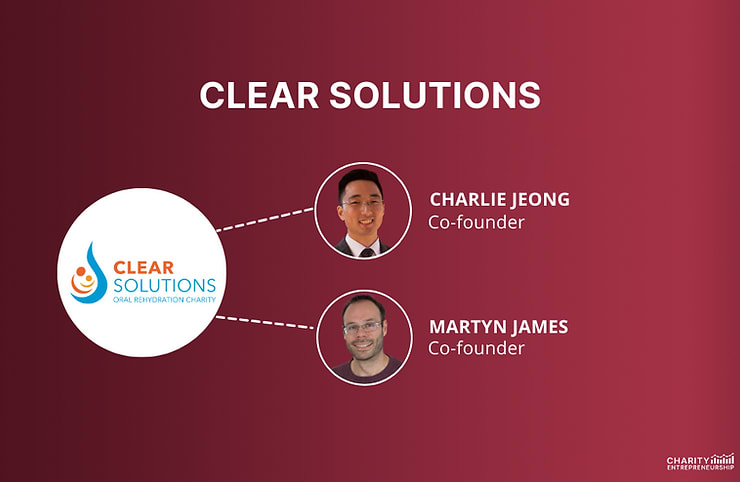
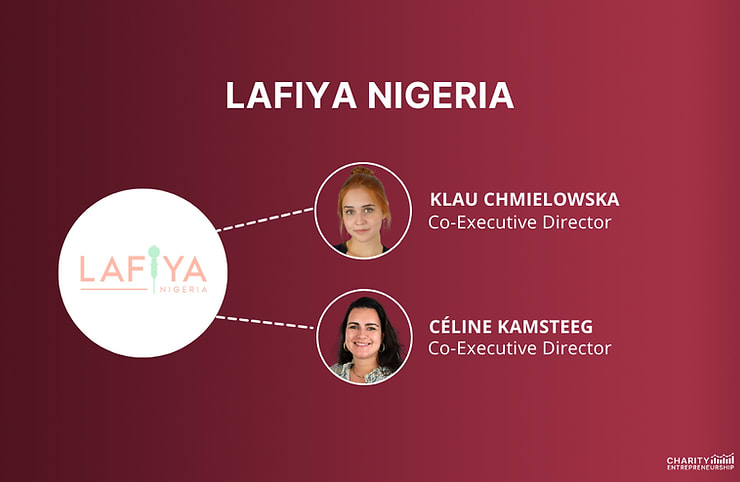
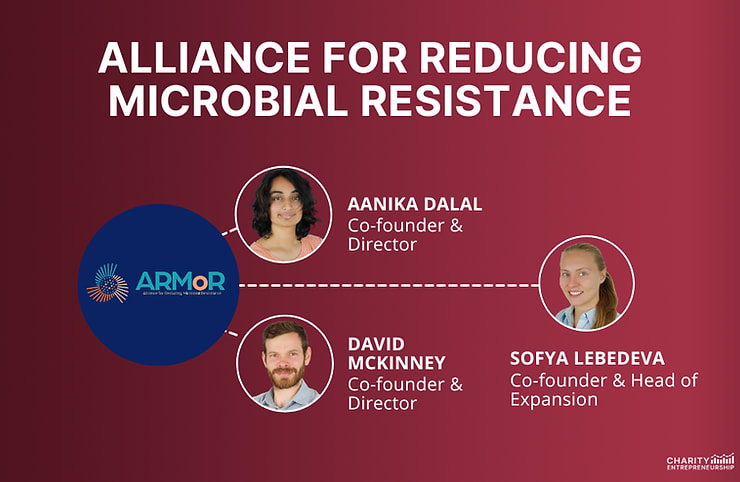
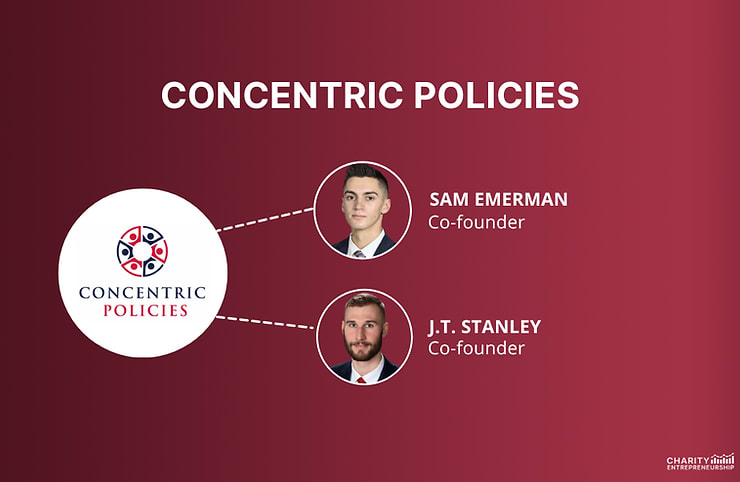
I’m excited to see these launches!
Does ARMoR’s launch with three cofounders represent a potential evolution in CE’s thinking about the optimal number of co-founders, or does it reflect something else, such as the needs of this specific incubation idea or the dynamics of this cohort (e.g., an odd number of co-founders in the round)?
Hello, member of the incubation program team here! There has been no change in our thinking on the optimal number of co-founders. This is a rare scenario where 3 makes sense :) The reasons it made sense in this case are idiosyncratic to the individuals involved and their career plans, so I won’t speak to that here, but I’m sure they’d be happy to explain the context 1:1 if you’re interested!
Hi! I am the “third” co-founder in this scenario. Happy to DM about why this particular choice was made and why it made sense for this team.